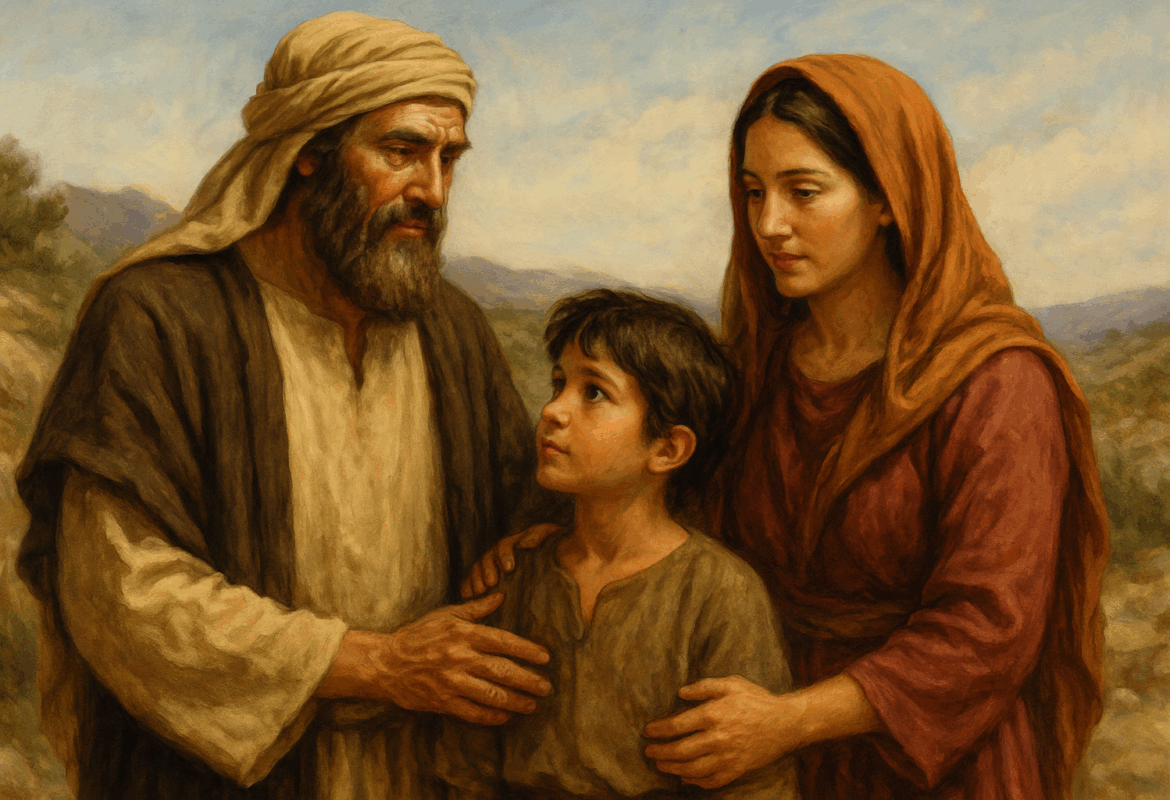Uncovering the Hidden Family of Moses: Meet Zipporah and Gershom and Discover What They Teach Us Today
When we think of Moses, we usually picture him parting the Red Sea, holding the Ten Commandments, or standing boldly before Pharaoh. But tucked away in the pages of Exodus is a lesser-known, more personal side of this great leader—his family. Moses had a wife, Zipporah, and two sons, including Gershom. And their story offers more insight than most of us realize.
Let’s dig into what Scripture tells us about them—and how their lives still speak to ours today.
Who Was Zipporah?
Zipporah was the daughter of Jethro, a Midianite priest (Exodus 2:16-21). Moses met her during a low point in his life. After fleeing Egypt for killing an Egyptian taskmaster, Moses arrived in Midian—alone, broken, and unsure of his future. There, he helped Zipporah and her sisters draw water from a well, and as a result, Jethro offered Moses hospitality. Eventually, Moses married Zipporah and started a new chapter of life.
It’s a touching reminder that God often builds new beginnings from broken places. Just when Moses thought his story was over, God was just getting started—and Zipporah became part of that new plan.
Meet Gershom: Moses’ Firstborn Son
Zipporah and Moses had two sons, but it’s Gershom who gets a special mention. His name means “a stranger there,” because, as Moses said, “I have become a foreigner in a foreign land” (Exodus 2:22). That’s a powerful name—full of both pain and perspective.
It reminds us that identity matters. Moses named his son as a reflection of his journey—feeling like an outsider, living in exile, still processing what God was doing in his life. Gershom’s name is a snapshot of Moses’ soul at the time.
Can you relate? Ever felt like a stranger in your own circumstances? Like you’re somewhere you never expected to be? The life of Gershom reminds us that God is still at work in those seasons of uncertainty.
A Complicated Family Moment
One of the most fascinating—and mysterious—moments in Zipporah’s story happens in Exodus 4:24-26. Right after God calls Moses to go back to Egypt, there’s a strange encounter where God seeks to kill Moses. Zipporah steps in and circumcises their son (likely Gershom) to resolve the situation.
It’s a difficult passage, but it shows something powerful: Zipporah was spiritually aware and took quick action to protect her family. She understood the seriousness of God’s covenant and was willing to act, even in a tense and unclear moment.
This reminds us that partnership in ministry—and in life—often means stepping in when it matters most, even if the moment is messy or misunderstood.
When Family Takes a Backseat
As the story unfolds, we see a moment where Moses sends Zipporah and the children back to her father (Exodus 18:2-3). Ministry had become intense. Moses was confronting Pharaoh and leading a nation. It’s not clear exactly why the family separated during this season, but it does hint at the tension between calling and family life—something many of us still wrestle with today.
Later, Jethro reunites them, bringing Zipporah and the boys back to Moses. It’s a brief but beautiful reunion. And it reminds us that family relationships may go through distance, but reconciliation is always possible.
What We Can Learn from Zipporah and Gershom
Zipporah and Gershom may not have the spotlight, but their presence in Moses’ life mattered. Their story is a quiet reminder that:
- Our families are part of our calling, even if their role isn’t always visible.
- God sees the hidden people—the ones behind the scenes, supporting, encouraging, and praying.
- Our identity is shaped by our journey—just like Gershom’s name reflected Moses’ heart, our seasons of struggle shape who we are and who we become.
So, whether you’re a visible leader or someone holding things together behind the scenes, take heart—God honors faithfulness, no matter where you serve.
Final Thoughts
The story of Zipporah and Gershom may feel like a side note in the grand drama of Exodus, but it’s a crucial one. Their lives intersected with one of the most pivotal moments in biblical history—and they remind us that every role matters, even if it doesn’t make the highlight reel.
As you reflect on their story, ask yourself:
- Where do I see myself in Zipporah or Gershom’s story?
- How am I supporting the spiritual calling in my family?
- Am I open to God working through me, even when it’s not glamorous?
Stay curious. Stay in the Word. And remember—God sees your faith, even when it feels hidden.
Discover more from Making Christ Known
Subscribe to get the latest posts sent to your email.
